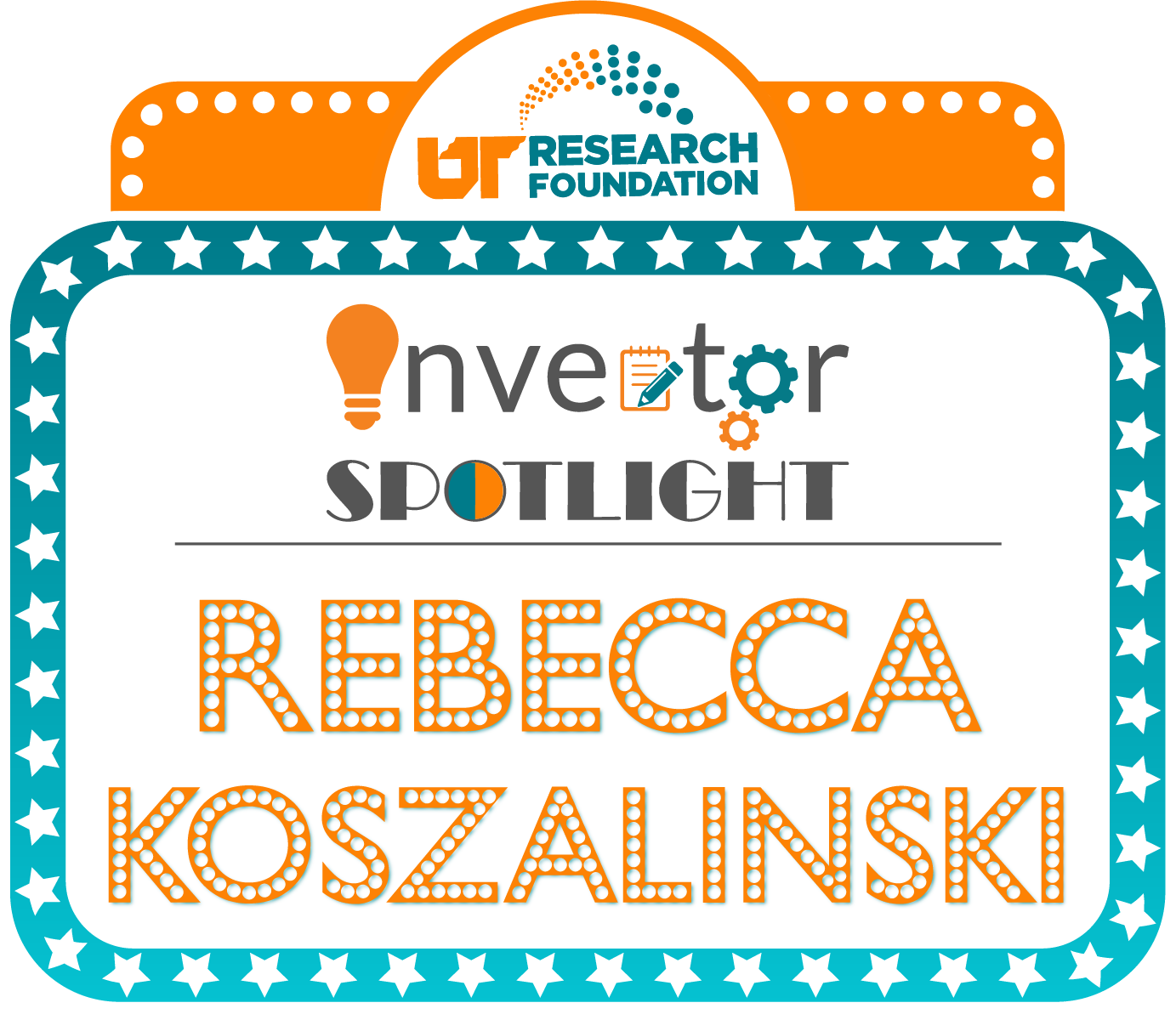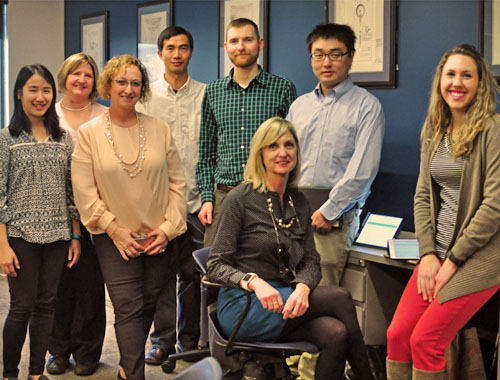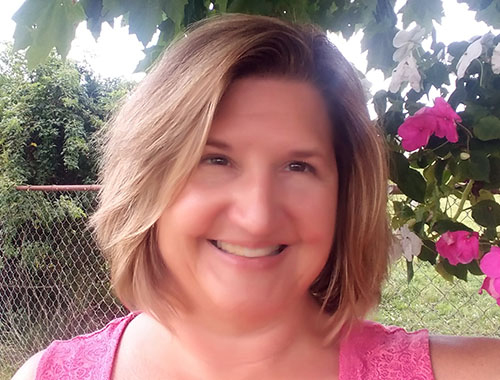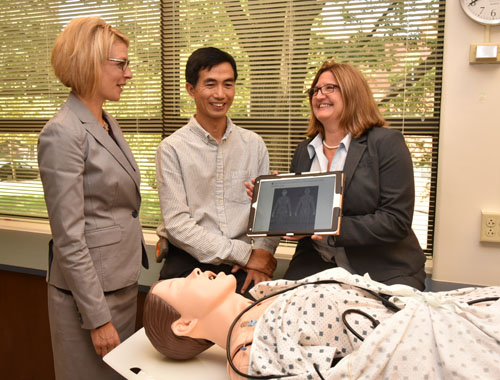
Rebecca Koszalinski Ph.D., CRRN, CMSRN is an Assistant Professor of Nursing in the College of Nursing at the University of Tennessee – Knoxville. Her research focuses on how technology can be used to improve patient outcomes. Dr. Koszalinski received her Master of Science in nursing education and Doctor of Philosophy at Florida Atlantic University in the Christine E. Lynn College of Nursing, and her Bachelor of Science at the University of Wisconsin-Oshkosh. She also earned a diploma in Histotechnology from Marshfield Labs/St. Joseph’s School of Histotechnology in Marshfield, Wisconsin. She joined UTK in August 2015 after serving as a clinical instructor for several years at FAU.
Dr. Koszalinski has a passion for working with chronically ill and disabled patients. It’s one of the reasons she pursued nursing. After she received her master’s, Dr. Koszalinski began teaching nursing students in the clinical setting and became an expert in rehabilitation. Her rehabilitation experience taught her the struggles that patients with cerebral palsy and spina bifida encountered while trying to communicate in clinical settings. This left them feeling misunderstood, ignored, and frustrated that they could not communicate their choices regarding care.



So Dr. Koszalinski developed a solution: the Speak for Myself app. Her goal was to design a user-friendly, inexpensive, and accessible app to benefit as many patients as possible. She worked with end-user patients at a Palm Beach County independent program to develop the app’s menu and delivered a proof-of-concept through an engineering independent study course she completed in the summer of 2010. The app, which can be used on an iPad or Android tablet, provides a menu of needs and preferences and is programmed by patients as they use it, tailoring it to their experiences.
After joining UTK, Dr. Koszalinski received an internal award to update the app based on patient comments from earlier feasibility and usability testing. She partnered with Health Innovation Technology and Simulation lab researchers Dr. Xueping Li and Dr. Sadie Hutson. Dr. Julian McCarthy, from Audiology and Speech Pathology, and Dr. Vandana Singh, from the School of Information Sciences, also helped design and test Speak for Myself. The latest version of the app works across a variety of mobile platforms, includes support for multiple languages, switches between male and female voices and graphics, and offers advanced care planning options.
Numerous graduate students in the College of Nursing and Tickle College of Engineering contributed to the continued development of Speak for Myself. Most recently, Dr. Koszalinski’s team of two engineering graduate students (Jagirdar, N., & Rajashekaran, P.) and faculty advisors (Li, X., Koszalinski, R.S., & Singh, V.) won first place for “Speak for Myself Mobile App” at the 6th Data Analytics & Information Systems Mobile App Competition, held during the Institute of Industrial Systems Engineering Annual Conference & Expo in Orlando, Florida on May 20, 2018.
Dr. Koszalinski is already planning future updates to Speak for Myself. Beginning this summer, she will work with a community of scholars from across the university (engineering, arts and science, nursing, education, and business) to develop a brain-computer interface so that all patients, regardless of their abilities, can use the app to communicate with their healthcare providers. Eventually, Dr. Koszalinski will offer a series of apps to assist a variety of patient populations with their needs, including the elderly and those with dementia.
Dr. Koszalinski has been working with the University of Tennessee Research Foundation to move Speak for Myself closer to commercialization.
“UTRF has been invaluable during this process,” she says. “Their knowledge and expertise have assisted my team with development and testing of Speak for Myself. Their support has made innovations, such as the Speak for Myself app, possible. I look forward to continued work with UTRF with Speak for Myself and other ideas!”
With UTRF managing the Speak for Myself app, Dr. Koszalinski looks forward to having more time to dream up innovations that can improve patient outcomes. In the meantime, she plans to seek federal funding to refine and test the app and future health-based applications.